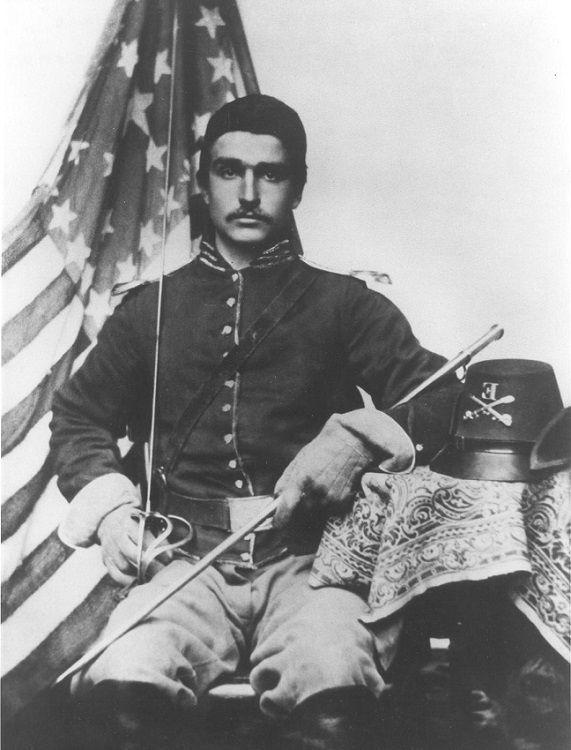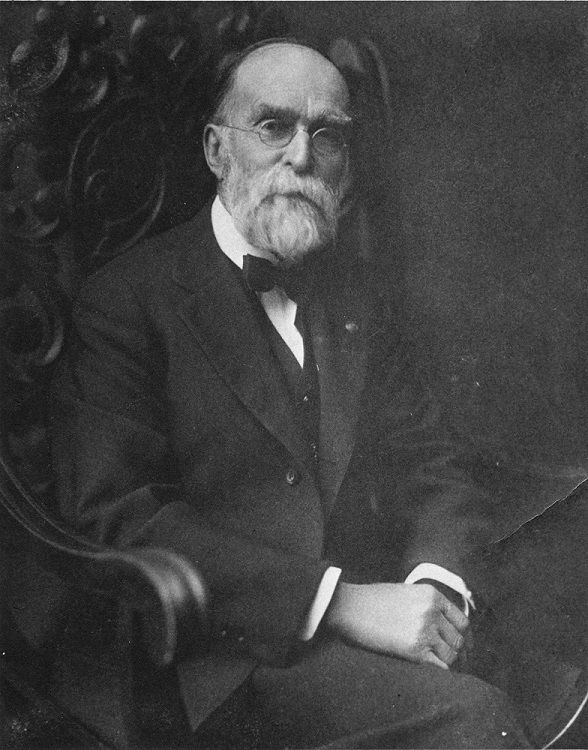Charles Henry Masland, founder of C. H. Masland & Sons, was born on December 15, 1841, in Germantown, Philadelphia, Pennsylvania.1 Along with his father and three of his brothers, he served in the Union Army in the Civil War.2 Masland first enlisted on April 21, 1861, in the Twenty-third Pennsylvania Volunteers, and he was discharged in Philadelphia five months later on September 1. He reenlisted on September 17, 1861, with Company E, Sixth Pennsylvania Cavalry, and was discharged three years later on September 17, 1864, at Harpers Ferry.3 Following his discharge, Masland secured a job at a Philadelphia dye house for nine dollars a week.4 By 1866, he owned the company and started the business that became C. H. Masland & Sons.5
The textile business was familiar territory to the Masland family, which had belonged to the Knitters Guild in Nottinghamshire, England, in the eighteenth century.6 However, the family business got its start in yarn dying. Masland and his brother James operated the dye house in Germantown, Philadelphia, for about one year, selling dyed yarn to carpet weavers. He then purchased the Allegheny Dye Works and operated it until 1886. That year, he and his two eldest sons, Maurice Henry and Frank Elmer, made their first venture into carpet weaving by building the Amber Carpet Mill in the Frankford-Kensington section of Philadelphia.7 Masland purchased sixty-three hand looms for Maurice and Frank to start the business.8 As co-founders of the family business, Maurice served as president while Frank became the treasurer. A few years later, two of their brothers, Charles William and John Wesley, joined the company as vice-president and secretary respectively.9
By 1919, C. H. Masland & Sons was contemplating relocating the family business. The congested multi-story buildings and labor unrest in Philadelphia led management to seek alternative headquarters.10 It was two of Masland’s grandsons, Frank Elmer Jr. and Robert Paul, who suggested relocating the company to Carlisle. Before joining the family business, the brothers had attended Dickinson College and had become acquainted with the town.11 Following their suggestion, Masland bought twenty-six acres of land along Spring Road, the site of the former Carlisle Fairgrounds. The relocation was complete four years later in 1923.12 When the Amber Carpet Mill closed in 1928, all operations moved to Carlisle.13
Masland married Annetta Rebecca Meyer on April 24, 1864. Together they had seven children: Maurice Henry, Frank Elmer, Harvey Christian, Charles William, John Wesley, Walter Edgar, and James W.14 Many of Masland’s grandchildren and great-grandchildren would join the family business in later years, with several becoming members of the Board of Directors.15 Masland died on March 26, 1934, leaving behind a legacy in Carlisle that would span generations.16



